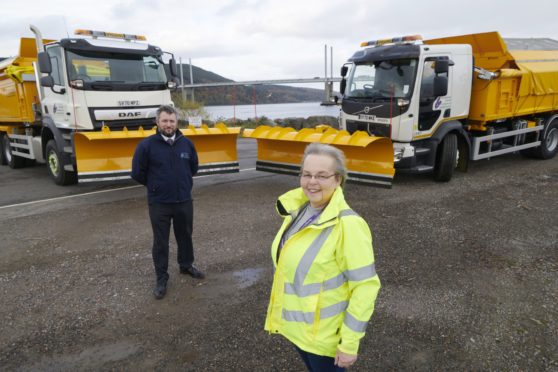Highland Council has stepped up its winter gritting programme in an attempt to reduce pressure on the NHS from patients with slips and falls on ice.
The council is boosting its pavement gritting resources and supporting communities to clear their own footpaths.
As in previous years, the council is providing salt in either bins or heaps, snow shovels and pushers, gloves and hi-vis vests, health and safety advice to volunteers and public liability insurance.
Full guidance and an application form for communities can be found on the Council’s website here.
A council spokeswoman said: “The council wishes to provide re-assurance to communities that its winter gritting teams are continuing to work extremely hard throughout the area during the current lock-down, providing a road and pavement gritting service following the council’s policy on prioritisation of routes.”
Details of the council’s Highland wide and local area gritting policies and maps are on the council’s website.
The local authority has recently invested in 10 new winter gritting vehicles to replace some of the aging fleet, brinigng the winter fleet to 105 gritters, 42 footpath tractors, and one snow blower with more than 200 staff spreading around 50,000 tonnes of salt on Highland roads and pavements in a typical winter.
Trish Robertson, the council’s economy and infrastructure committee chairwoman, said: “The council is working hard to deliver our winter gritting services despite the challenges that the pandemic is putting in front of us.
“Recognising the challenges being faced by the NHS, we want to do as much as possible to avoid the risk of slips and falls, and allow people to be able to get out and about as much as possible.
“If communities are able to assist in providing enhanced or more localised services, there is an opportunity for salt to be delivered to locations along with equipment to assist in spreading.
“The link on the Council’s web-site gives further information, and I would urge any community or resilience groups who have capacity to help to get in touch and our local teams will help advise on appropriate locations for salt storage.”
